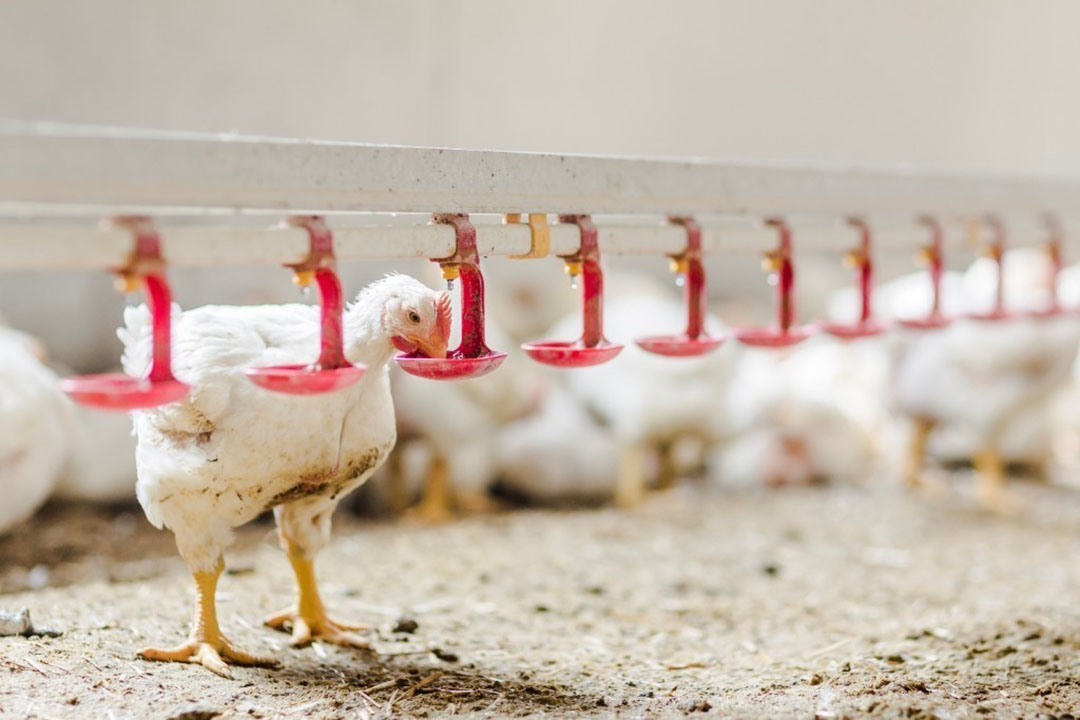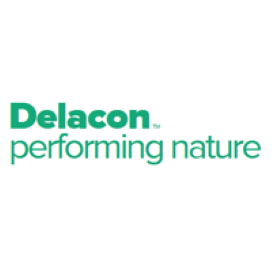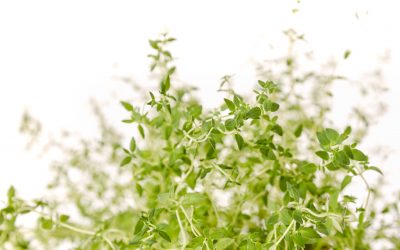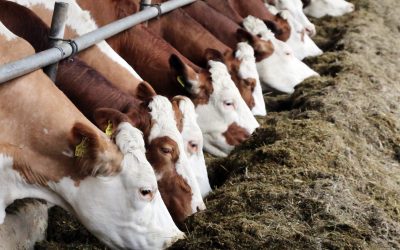Beat the heat in poultry production

Hot, hotter, heat stress. Climate change with its rising temperatures is increasingly becoming an intense stress factor in animal production. In the summer months, outside temperatures can quickly reach highs of over 35°C – this means it can get hot in the poultry house.
Modern broiler breeds have a continuously increasing growth rate and feed efficiency, which coincides with a reduced heat tolerance. Housing broilers at high ambient temperatures adversely affects performance, intestinal integrity, immune response, and meat quality. In order to avoid heat-related performance losses, it is advisable to apply some nutritional practices, such as the addition of phytogenic feed additives, alongside other management practices to alleviate the negative consequences of heat stress.
Counting the cost of heat stress
Heat stress is an important environmental challenge for the livestock industry, especially in newly industrialising countries in the (sub)tropics. In the US, the costs of heat stress amount to more than US$ 160 million per year. The condition of heat stress occurs when animals are unable to lose their body heat due to high ambient temperature in combination with high relative humidity, resulting in unfavourable consequences that range from discomfort to increased mortality. The impact of heat stress depends on several factors including age and genetics, health status, nutritional status, and rearing conditions.
As long as the ambient temperature is lower than the body temperature of the birds, the heat loss from the core to the skin can be increased by radiation by varying the peripheral blood flow. However, if the ambient temperature exceeds the body temperature, the bird loses the ability to give off heat through radiation and the core body temperature increases. Unlike mammals, birds do not have sweat glands hence they are unable to sweat. Birds can lower their body temperature through panting and beak breathing.
Changes in the animals’ behaviour
Heat stressed animals change their behaviour and physiology to dissipate heat and maintain body temperature. Especially reduced feed intake is one of the first noticeable consequences of heat stress. Commercial broilers are particularly susceptible to heat stress, as their metabolic heat production is relatively high compared to other livestock.
Housing poultry at high ambient temperatures in combination with high humidity not only impairs production performance but also has negative effect on intestinal integrity, immune defence and meat quality. Inside the animal’s body, heat stress challenges the antioxidant defence systems and reduces the intestinal integrity.
Heat stress as a performance brake
Dry heat or a combination of high temperatures and high humidity causes a variety of behavioural, physiological and immunological changes in poultry. Thus, there are short and long-term negative effects on the immune system, as well as on the welfare, productivity and ultimately health of the animal. The reduction of feed intake is one of the first notable effects of heat stress in poultry. This reduction in feed intake during heat stress accounts for around 90% of the reduced weight gain. In acute stress situations, the synthesis of corticosterone, adrenaline and noradrenaline is also increased, resulting in enhanced muscle activity, increased respiration and blood glucose levels.
These increased plasma cortisol levels stimulate muscle breakdown and lipid peroxidation in muscle tissue, which is reflected in high levels of malondialdehyde (MDA) in the breast muscle of broilers, for example. In addition, the released stress hormones reduce the release of steroids and gonadotropins, resulting in reduced follicular development in hens. Moreover, studies show that the synthesis and release of vitellogenin, which is necessary for the deposition of egg yolk, is suppressed during heat stress. Also, the activity and efficiency of lymphatic organs such as bursa, spleen and thymus are impaired, resulting in impaired immune response in poultry. Furthermore, it has been shown that hyperventilation or ‘panting’ to dissipate body heat leads to an increased release of CO2, which is necessary for the synthesis of calcium carbonate for egg shell formation. Heat stress has also been shown to increase blood pH and disturb the acid-base balance. This change in the acid-base balance can have negative effects on cardiac muscle activity and bone density.
Impact of heat stress on intestinal functions
Further investigations have shown that heat stress also impairs intestinal activity causing increased activity of the gastrointestinal tract, resulting in mild diarrhoea and electrolyte imbalance. Heat stress is also associated with increased lipid peroxidation in the enterocytes: chronic heat stress and associated oxidative stress lead to an overloading of the body’s anti-oxidative mechanisms, thus compromising intestinal integrity. Reactive oxygen species (ROS) – also known as ‘free radicals’ – produced during oxidative stress, attack the intestinal mucosal cells and may lead to increased inflammation.
It has also been suggested that heat shock proteins (HSP70, a group of highly conserved protective proteins involved in cell protection and repair) play an essential role in alleviating heat stress by stimulating the activities of antioxidant enzymes and reducing oxidative damage in intestinal mucosal cells during heat stress. As a result, the intestinal epithelia may become increasingly permeable, the digestibility of nutrients decreases and the loss of water from the gut increases. This ‘leaky gut’ can lead to an increased translocation of bacterial toxins, antigens and bacteria into the bloodstream, triggering the immune system and increasing stress on detoxifying organs – especially the liver. As a result, animal performance suffers. But it is not only growth performance that is impacted by heat stress – food safety may also be impaired. Due to increased cellular turnover and reduced intestinal integrity, pathogenic bacteria such as Salmonella enteritidis can pass the intestinal barrier and enter the body tissues. This poses a significant risk to food safety and therefore consumer health. However, it has also been suggested that heat shock proteins (HSP70, a group of highly conserved protective proteins involved in cell protection and repair) play an essential role in alleviating heat stress by stimulating the activities of antioxidant enzymes and reducing oxidative damage in intestinal mucosal cells during heat stress.
Nutritional strategies to reduce heat stress
In addition to the optimisation of feed composition and structure, several (classes of) feed additives have been investigated to mitigate (the consequences of) heat stress. The efficacy of such additives is mainly directed towards their antioxidative effect. Heat stress in particular, induces oxidative processes in enterocytes, as described earlier. Increased amounts of dietary antioxidants, such as a combination of vitamins A and E, are able to reduce lipid peroxidation during heat stress. Furthermore, the addition of vitamin E improves the immune response of heat-stressed broilers.
Moreover, the non-essential amino acid glutamine has also been shown to increase the expression of HSP70 in the jejunal mucosa after acute heat stress, thus protecting it from oxidative stress, in addition to improving growth and meat quality.
Although the effects of nutrient concentration on the heat load of broilers are limited, an increased nutrient concentration of the feed, for example in the form of high-quality pellets, can also reduce the energy necessary for nutrient uptake. In addition, by limiting excess protein and optimising the amino acid profile, the metabolic energy costs associated with excess nitrogen excretion can be minimised. However, the optimal amino acid profile for heat stress conditions is not yet known.
Keep cool with the power of nature
Phytogenic feed additives (PFAs) are a valuable tool to meet current and future challenges in animal production. Many plants (e.g. thyme, oregano) and their active substances show effects that can maintain intestinal integrity and support the antioxidative capacity of the body, especially under heat stress. These mechanisms lead to the maintenance of a normal health status so that the bird can fully exploit its genetic potential.
Many aromatic plants, especially those of the Labiatae family (e.g. rosemary, thyme, oregano and sage), have been extensively studied for their antioxidant and anti-inflammatory properties. For example, thyme oil improved intestinal antioxidant status, reduced MDA content in the enterocytes and improved intestinal integrity. These activities are not only related to the phenolic compounds but also the non-phenolic compounds. These may show considerable anti-oxidative and anti-inflammatory activities by stimulating the detoxification of generated reactive oxygen species during stress. This is via either directly scavenging free radicals or indirectly by upregulating the expression of antioxidant and anti-inflammatory genes resulting in the production of antioxidant enzymes and anti-inflammatory proteins.
Improving feed conversion rates
Besides limiting the oxidation-inflammation cascade, assorted essential oils have been shown to stimulate heat shock proteins that significantly contribute to the preservation of the intestinal barrier by inducing repair processes and improving cellular defence mechanisms. Moreover, it was shown that assorted pungent substances and essential oils have the ability to enhance the secretion of digestive juices and to stimulate nutrient transport from gut lumen to bloodstream, resulting in improved feed conversion. Additionally, assorted phytogenic ingredients support feed intake and nutrient digestibility and thus maintain high performance even during periods of heat stress.
Figure 1 – Biostrong Comfort maintains performance even under cyclic heat stress conditions.


A phytogenic feed additive (Biostrong Comfort) containing essential oils, flavonoids and pungent substances, spices and saponins has shown to improve the performance of broilers under heat stress conditions (Figure 1). A study conducted on 576 broilers (6 repetitions of 32 birds each; duration 42days) showed an increase in body weight of 5.2%, an increase in feed intake of 2.1%, and a reduction in FCR of 2.0% under cyclic heat stress conditions (8h at 32°C, 12h at 26°C, plus daily adjustment times; day 1-42 of age).
Profitable animal production
In terms of improving digestibility and performance even under heat stress, phytogenic feed additives have the potential to become a new generation of feed additives for innovative animal nutrition and welfare. They should be a decisive instrument to counteract heat stress and thus contribute to profitable animal production.
References available upon request
Authors: David Harrington, Special Leader Poultry and Anne Oberdorf, Technical Communications, Delacon




